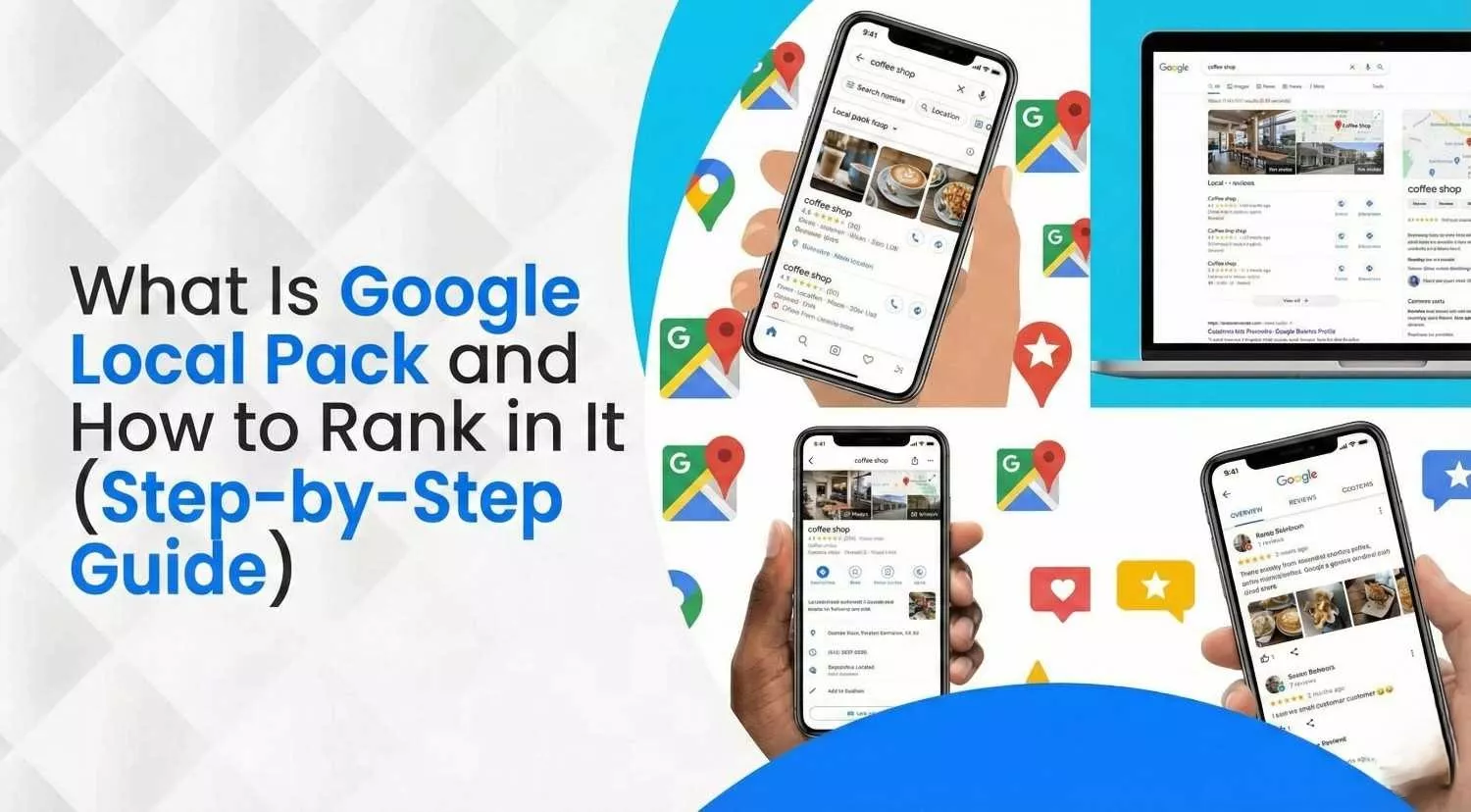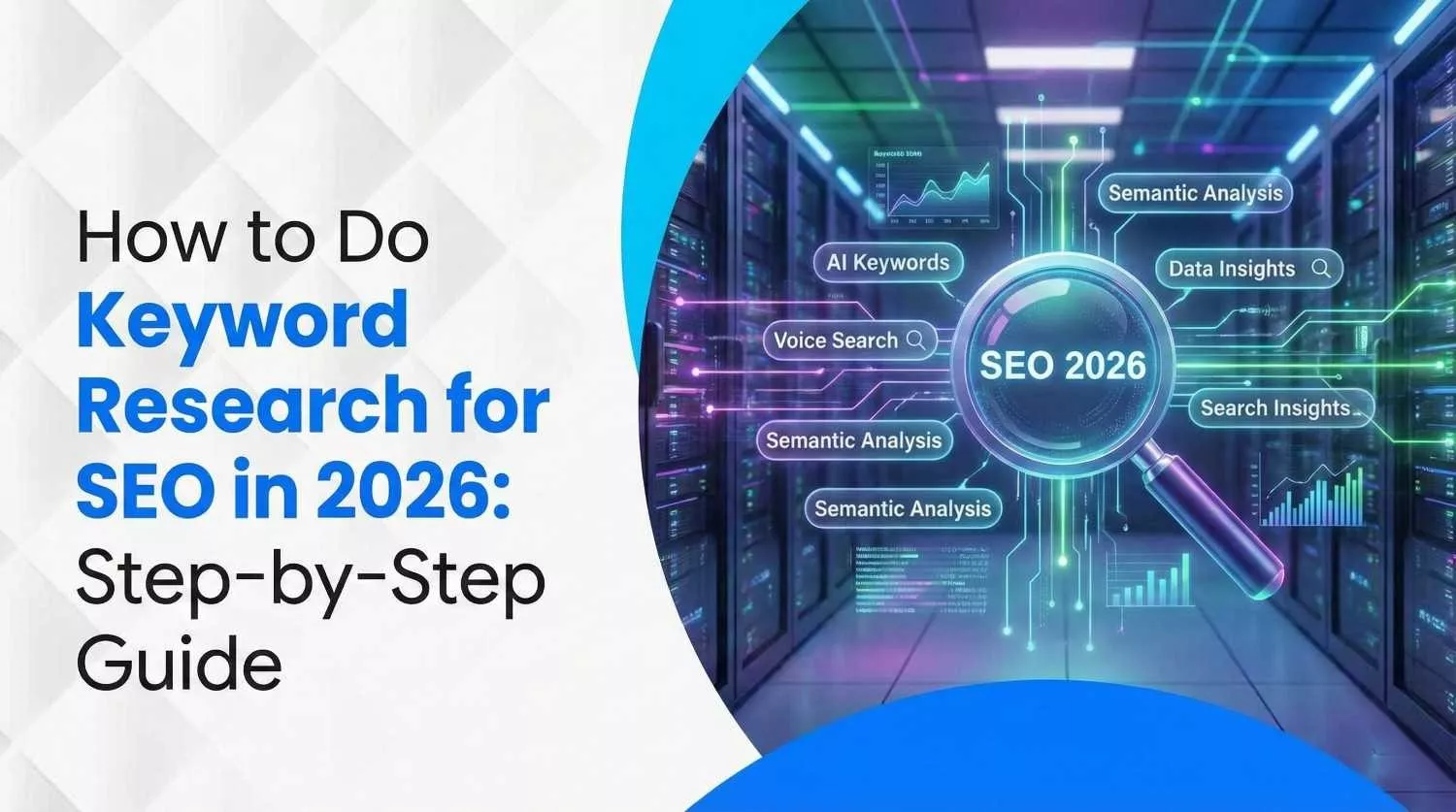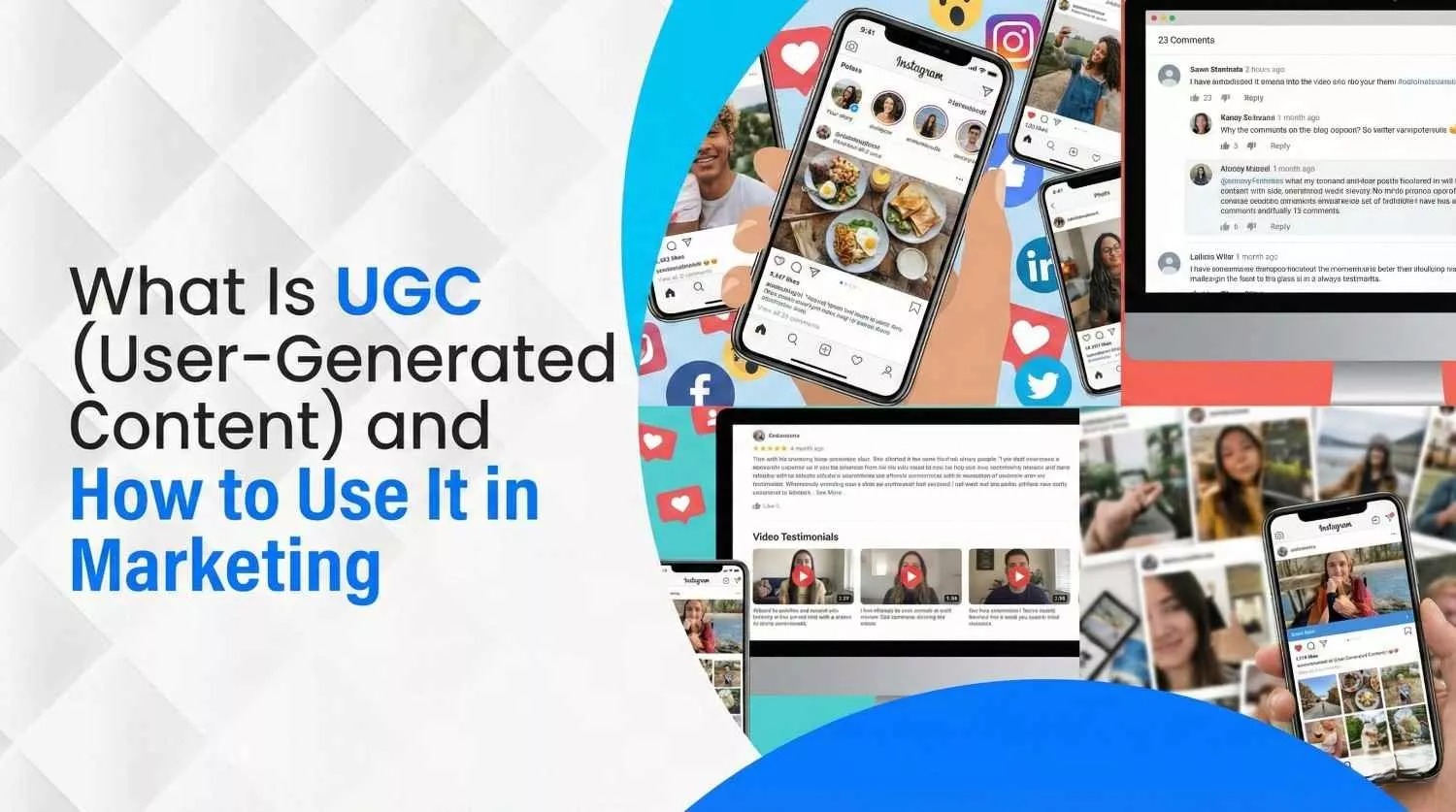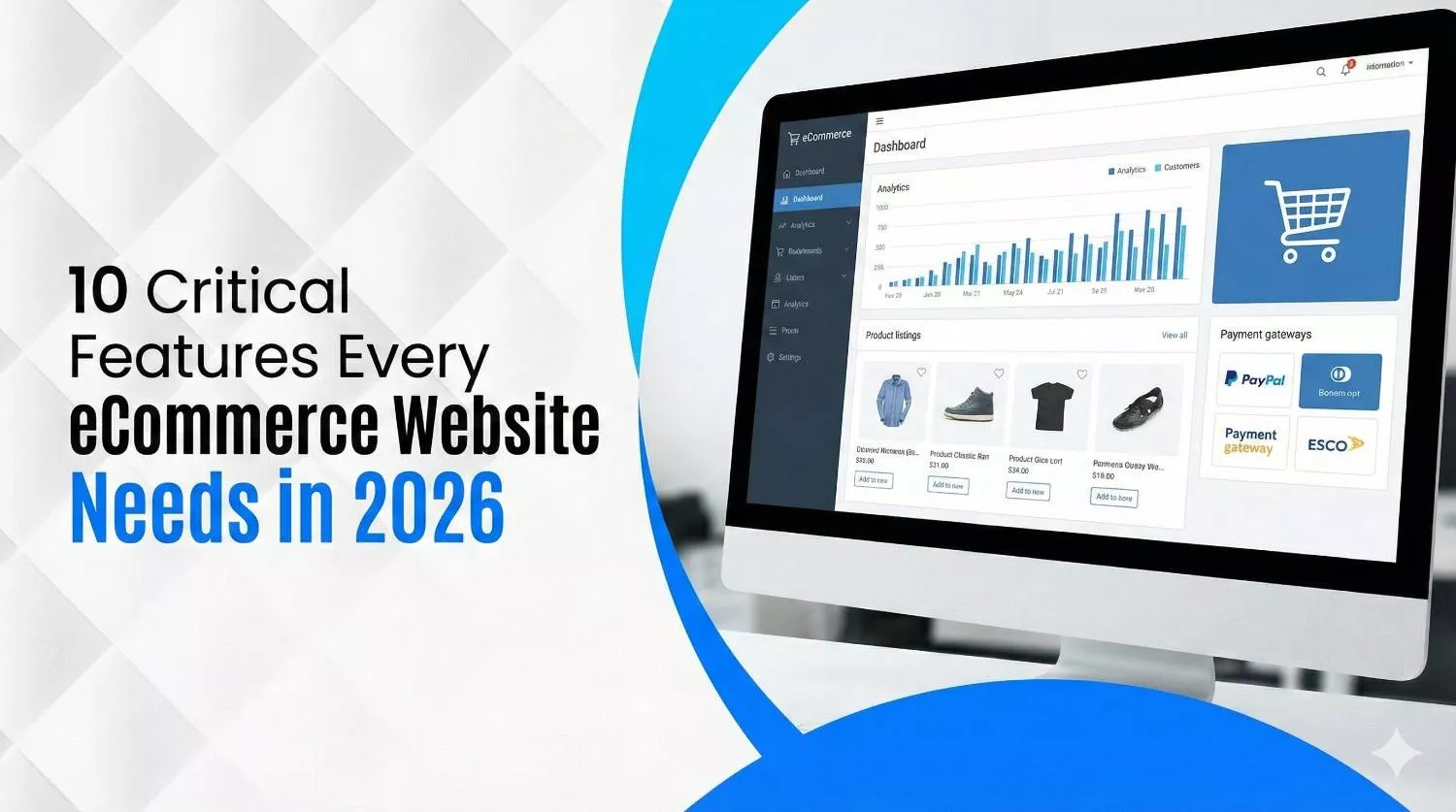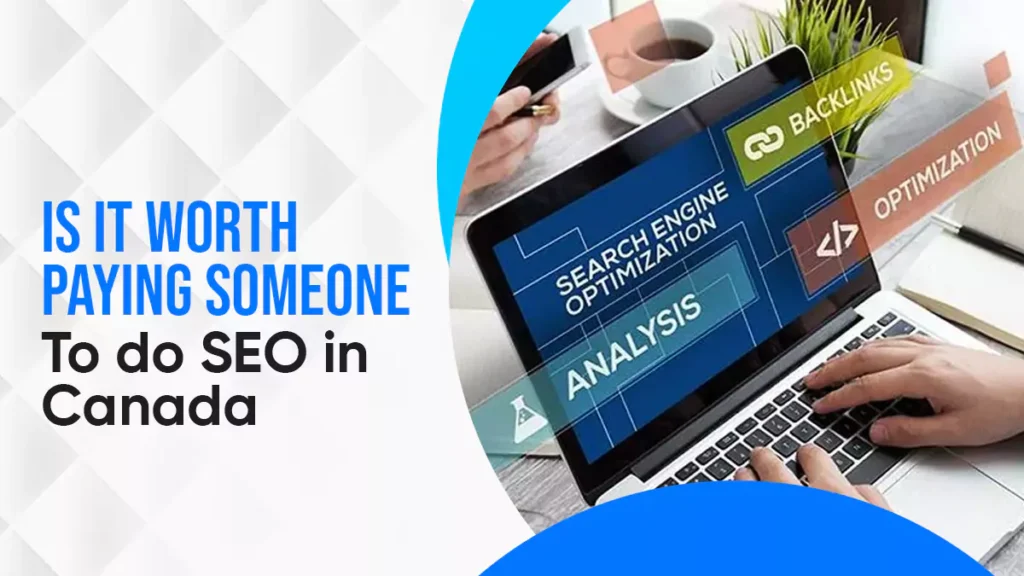
Is It Worth Paying Someone to Do SEO in Canada?
September 16, 2025
| Neha Ghauri | Reviewed by Haseeb Hamdani
- Does SEO Still Matter in 2025 (Canada Focus)
- DIY SEO vs Hiring an SEO Expert in Canada
- How Much Does SEO Cost in Canada (2025)
- SEO 80/20 Rule: Where to Focus for Best Results
- SEO in 2025: AI, Google Updates & Content Quality
- Do You Need to Keep Paying for SEO Forever?
- Risks of Bad SEO Practices
- How to Choose the Right SEO Agency in Canada)
- Quick FAQs
Launching a website or running a local business without thinking about search engines is like throwing a party and forgetting to send invitations. You might have the best cake in town, but if nobody knows where to find you, you’ll be singing happy birthday all by yourself. And that’s kinda sad.
That analogy captures the essence of search engine optimization (SEO), the invisible handshake between your business and Google that drives organic traffic and converts curious searchers into loyal customers.
SEO is still the lifeblood of digital marketing in 2025. But here’s the big question: do you pay an expert to handle it, or dive in and figure it out on your own?
Let’s explore the numbers, the pros and cons, and some light‑hearted truths about the is paying someone for SEO worth it question.
Does SEO Still Matter in 2025 (Canada Focus)
Before we debate whether you should hire someone, we need to confirm that SEO is still relevant. Some skeptics argue that social media is the future and that voice assistants are replacing search queries.
However, data paints a different picture:
-
Most online journeys start with search: About 68% of online experiences begin with a search engine. Social platforms might create buzz, but search is still the go‑to starting point when people need answers.
-
Organic search dwarfs social and paid channels: SEO drives over 1,000% more traffic than organic social media, and the average website receives 53.3% of its traffic from organic search compared to just 5% from social. Meanwhile, search accounts for 53% of all web traffic vs. 27% from paid search.
-
Visibility matters: Only 0.63% of users click on page two results, so ranking on page one is critical. The top three results capture almost half of the clicks, and the #1 result alone gets 27.6%.
-
Local searches have huge commercial intent: Nearly 46% of Google searches are local, and most consumers use online search to find local businesses. 76% of people who search for something nearby visit a business within a day, and 28% of local searches result in a purchase.
-
SEO leads convert: SEO leads close at 14.6% compared to 1.7% for outbound leads. People trust organic results more than ads because they see them as relevant solutions rather than paid promotions.
Add these stats up, and it’s clear that SEO still matters.
Ignoring it in 2025 is like ignoring the Maple Leafs’ playoff chances; you might think it doesn’t matter, but there’s always a chance for success (and you don’t want to miss it).
DIY SEO vs Hiring an SEO Expert in Canada
The central question is, can I do SEO on my own, or should I hire someone for SEO?
To answer, let’s look at the two sides and poke some fun along the way.
Advantages of DIY SEO
When you manage your SEO yourself, you’re in the driver’s seat – with full control over your strategy and the freedom to experiment (or stumble) as you please.
- Cost Savings: The biggest advantage is that you save agency fees. DIY SEO means you invest mainly in your time, free tools (like Google Search Console), and maybe a few inexpensive courses.
- Full Control: You decide what gets implemented, changed, and prioritized. You know your business better than anyone and can align SEO with your brand’s tone and long‑term goals.
- Learning Opportunity: SEO is a valuable skill. Learning it yourself provides long‑term benefits and makes you more resilient to future algorithm changes.
- Flexibility for Small Sites: If you run a small local business with minimal competition, DIY SEO can be effective. With good keywords, a well‑structured website, and some basic backlinks, you can reach local customers without paying high agency fees.
But remember: being a DIY SEOer is a bit like brewing your own beer. The first batch might taste like dishwater, but with time and passion, you’ll produce something quite special 🙂
Disadvantages of DIY SEO
- Time-Intensive: SEO is not a one‑time task; it’s an ongoing process that includes content creation, technical optimizations, link building, and data analysis. If you’re already juggling inventory, customer service, and finances, adding SEO can lead to burnout.
- Steep Learning Curve: Search engines continuously update their algorithms. Without experience, you risk making mistakes, from keyword stuffing to ignoring technical errors. A lack of expertise can lead to penalties, similar to accidentally hitting “Reply All” on a company‑wide email.
- Limited Access to Tools: High‑quality tools like Ahrefs, SEMrush, and Moz provide deep insights into keywords, backlinks, and competitor strategies, but they’re expensive. Free tools help, but don’t offer the same depth.
- Risk of Black Hat Practices: Inexperienced marketers might unknowingly use black‑hat tactics that can lead to penalties or delisting. As one cautionary article explains, cheap freelancers sometimes employ black-hat tactics that nearly cost clients their businesses.
So yes, you can build your own SEO campaign, but it’s a bit like performing your own dental work: technically possible, but perhaps not advisable.
Benefits of Hiring an SEO Agency in Canada
- Expertise & Experience: Agencies specialize in SEO; they know what works, what doesn’t, and how to navigate algorithm updates. They can shorten your learning curve by years.
- Access to Advanced Tools: Agencies pay for enterprise‑grade tools that provide insights you won’t get from free versions..
- Time Efficiency: Outsourcing frees up your time to focus on core business activities, while experts tackle technical issues, keyword research, and link building.
- Scalability & Performance Tracking: A reputable agency provides data‑driven insights and customized strategies that scale with your business. They track metrics like organic traffic, keyword rankings, and conversions to prove ROI.
- Reduced Risk: Experienced SEOs use white-hat techniques and avoid penalties. They also monitor algorithm updates and adapt strategies to ensure your site maintains rankings.
How Much Does SEO Cost in Canada (2025)
Many entrepreneurs ask, “How much does SEO cost vs. the time investment?” According to industry research, SEO pricing in Canada varies widely depending on the scope of work:
-
Hourly Rates: In major Canadian cities, experienced agencies charge $150–$300 CAD per hour. In less competitive markets, local SEO can start around $75–$125 CAD per hour.
-
Monthly Retainers: Most SEO agencies in Toronto charge $3,000–$5,000 CAD per month, and 75% use monthly pricing models.
-
Project Costs: One‑time projects (site audits, technical fixes) can range from $5,000 to $30,000, while ongoing SEO for medium and large businesses typically costs $1,500 to $5,000 per month.
-
DIY Tools & Learning Costs: DIY SEO isn’t free. Premium tools like Ahrefs or SEMrush can run $100–$200 per month. Add in your time, hours spent learning, writing content, and building links, and the DIY route becomes a major commitment.
If you are looking for affordable and reliable SEO services, Wide Ripples can be your knight in shining armour with packages starting from just $1000.
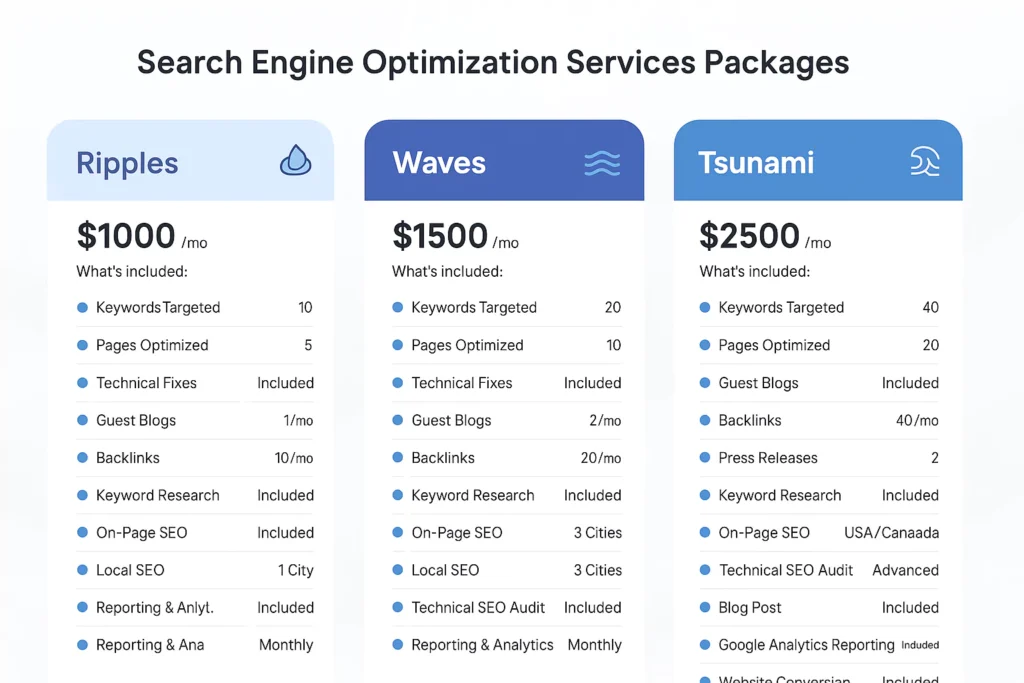
For more details, visit their website or get free consultation with SEO Experts.
SEO 80/20 Rule: Where to Focus for Best Results
The SEO 80/20 rule says that 20% of your efforts yield 80% of your results. Instead of trying to do everything, focus on the essentials:
- Technical Foundation (the hidden infrastructure): Ensure your site loads quickly, is mobile‑friendly, and has a logical architecture. Even the best content won’t rank if Google can’t crawl your pages.
- On‑Page Content & User Experience: Write high‑quality, relevant content that answers searchers’ questions. Use keywords naturally in titles, headings, meta descriptions, and alt text. Provide a great user experience with clear navigation and calls to action.
- Off‑Page Authority: Build credible backlinks from reputable sites. According to Reboot’s statistics, only 6% of webpages have one or more backlinks, highlighting the importance of link building.
- Local SEO Basics: Claim and optimize your Google Business Profile, collect reviews, and ensure your NAP (Name, Address, Phone number) is consistent across directories. Businesses with complete profiles receive more views and visits.
- Monitor & Adjust: SEO isn’t set‑and‑forget. Regularly review analytics to see which pages rank and convert, then refine accordingly.
Applying the 80/20 rule is a bit like making poutine: focus on good fries, gravy, and cheese curds. Don’t overcomplicate things with truffle oil unless you’ve nailed the basics.
SEO in 2025: AI, Google Updates & Content Quality
Google updates its algorithms like Canadians talk about the weather, frequently and with surprising impact. In late 2022, Google introduced the Helpful Content Update and the E‑E‑A‑T framework (Experience, Expertise, Authoritativeness, Trustworthiness). According to Google’s own documentation, E‑E‑A‑T isn’t a single ranking factor but rather a set of guidelines used to identify useful content.
What does this mean for you?
- Quality Over Quantity: Producing mass, low‑value content just to rank will backfire. Google looks for content that demonstrates genuine expertise and transparency.
- Disclosure of AI Use: If you use AI tools to create content, disclose how it was generated and ensure human oversight. Transparency builds trust.
- Expert Authorship: Show who wrote the content and why they’re qualified. If your cousin wrote a blog about dental implants because he had one, please make that clear.
Keeping up with algorithm updates is time-consuming. Agencies monitor these changes daily and can adjust your strategy. DIYers must allocate time to follow Google’s blog posts and SEO news; ignoring updates can cause rankings to plummet overnight.
Do You Need to Keep Paying for SEO Forever?
Many businesses wonder, “Once my rankings improve, can I stop paying for SEO?” The answer depends on your market and competition.
We are gonna be honest with you. Stopping SEO is like canceling your gym membership right after you achieve your fitness goals. You might maintain your physique for a while, but eventually the lack of exercise catches up.
Search engines evolve, competitors invest continuously, and new content emerges daily. If you stop investing in SEO, your site can slip down the rankings as competitors overtake you.
However, after achieving stable rankings, you might reduce spending from a full‑service plan to maintenance and content updates. Keep an eye on analytics to ensure you don’t lose ground.
Risks of Bad SEO Practices
Bad SEO can harm your business more than no SEO.
Here are the risks:
- Penalties & Rankings Drop: Black‑hat tactics like keyword stuffing, cloaking, or buying spammy links can lead to penalties or removal from search results. Recovery can take months or years.
- Poor User Experience: Slow-loading pages, broken links, and intrusive pop-ups drive users away, increasing bounce rates and hurting rankings. Google’s Core Web Vitals update means user experience is now a ranking signal.
- Waste of Resources: Doing SEO without a clear strategy wastes time and money. It’s better to invest in research, create high-quality content, and measure results.
- Brand Damage: Outdated tactics or low-quality content can damage your brand’s credibility. Users may see you as untrustworthy if your site is full of obvious SEO tricks.
If you’re not confident in your SEO skills, hire an expert for at least an audit and strategy.
How to Choose the Right SEO Agency in Canada)
So, you’re thinking about outsourcing your SEO? Smart move! But choosing the right agency doesn’t have to feel complicated.
Here’s how to make it simple.
Check Their Wins
Don’t just take their word for it. Look at case studies and reviews. A solid agency will proudly show real results. Wide Ripples has plenty to share.
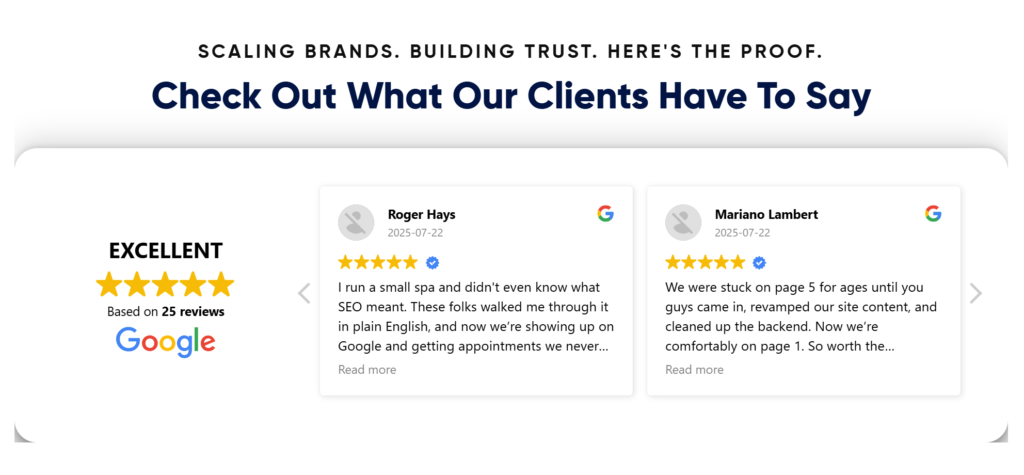
Know the Costs
Agencies charge in different ways, whether hourly, monthly, or per project. Always compare and see what fits your budget. Ours are clear and straightforward with no surprise bills.
Look for Transparency
The best SEO partners explain their strategies, share reports, and keep you in the loop. That’s our approach: open, honest, and with no shady shortcuts.
Match Your Goals
If they understand your niche, whether small business, e-commerce, or SaaS, they’ll deliver results faster. Ask about traffic, conversions, and ROI. We track all of that for you.
Test the Vibes
A good agency feels like a partner, not just another vendor. You should feel comfortable asking questions and getting clear answers. That’s why our clients stay. We’re approachable and always ready to help.
Ready to grow with a team that has the expertise and the friendly touch? Wide Ripples is just a message away.
Quick FAQs
Is hiring an SEO agency worth the money?
In many cases, yes. Especially for competitive industries or businesses lacking the time or expertise to manage SEO effectively. Agencies bring expertise, tools, and strategic insight. However, if you have a tight budget and operate in a low-competition niche, a DIY approach may suffice.
How much time does it take to see results with SEO (DIY and agency)?
SEO is a long game. Whether you DIY or hire a pro, expect to see measurable results in 6–12 months
What is the 80/20 rule for SEO, and how does it apply?
The 80/20 rule states that 20% of your efforts generate 80% of your results. In SEO, focus on technical health, high-quality content, authoritative backlinks, and local profiles.
Can I do SEO on my own, or should I pay someone?
You can absolutely learn and implement SEO yourself, but be prepared for a steep learning curve. DIY works well for small businesses with limited budgets and low competition. For competitive markets, complex sites, or faster growth, hiring an expert ensures you don’t miss critical elements and incur penalties. Consider a hybrid approach: learn the basics, then bring in a pro for advanced work and audits.
Is SEO still relevant in 2025 with AI and changing algorithms?
Yes. While AI-generated content and voice search are changing the landscape, search remains the starting point for most online journeys. Google’s E‑E‑A‑T guidelines emphasize people‑first content and trust. High-quality content backed by expertise and transparency will always have a place in search results.
What skills or knowledge do I need to do SEO well myself?
You’ll need a grasp of keyword research, technical SEO (crawling, indexing, site structure), on-page optimization, content creation, link building, and data analysis.
What factors affect SEO costs?
Costs vary based on location, competition, the scope of services, and whether you hire an agency or a freelancer.
How to choose a good SEO agency?
Check their credentials, pricing models, and transparency. Ask for case studies and references. Understand whether they specialize in your niche. Ensure they follow white-hat practices and track meaningful metrics.
What are the risks of doing SEO poorly myself?
Poor SEO practices can lead to penalties, lower rankings, wasted resources, and damaged credibility. Avoid black-hat tactics like buying backlinks or stuffing keywords. When in doubt, consult an expert or at least invest in a one-time audit.
Should I keep paying for SEO after initial improvements?
SEO is an ongoing process. If you stop investing, you risk losing rankings to competitors. However, after reaching stable positions, you might shift from intense campaigns to a maintenance plan. Monitor your analytics; if traffic begins to drop or new algorithm updates emerge, reinvest accordingly.
Disclaimer: The information provided in this blog is for general informational purposes only. For professional assistance and advice, please contact experts.
Search Here
More Categories
Latest Posts
About Author
Neha Ghauri
Neha Ghauri, a graduate, has seven years of experience in writing for the digital marketing, finance, and business industries. She specializes in SEO-driven...


